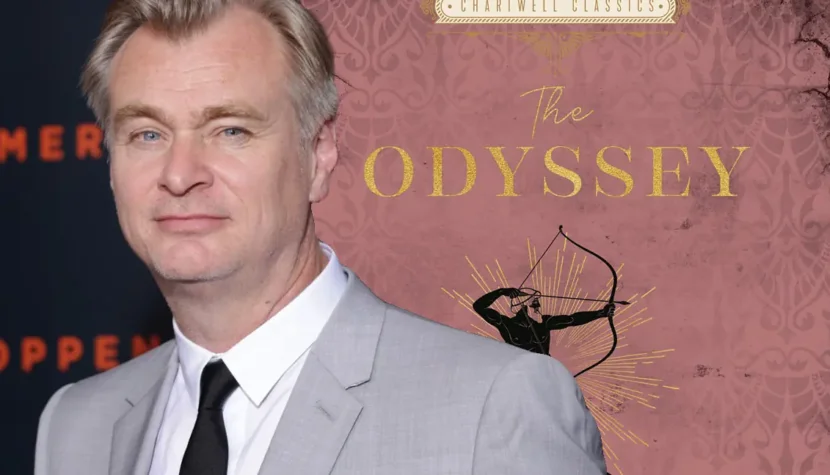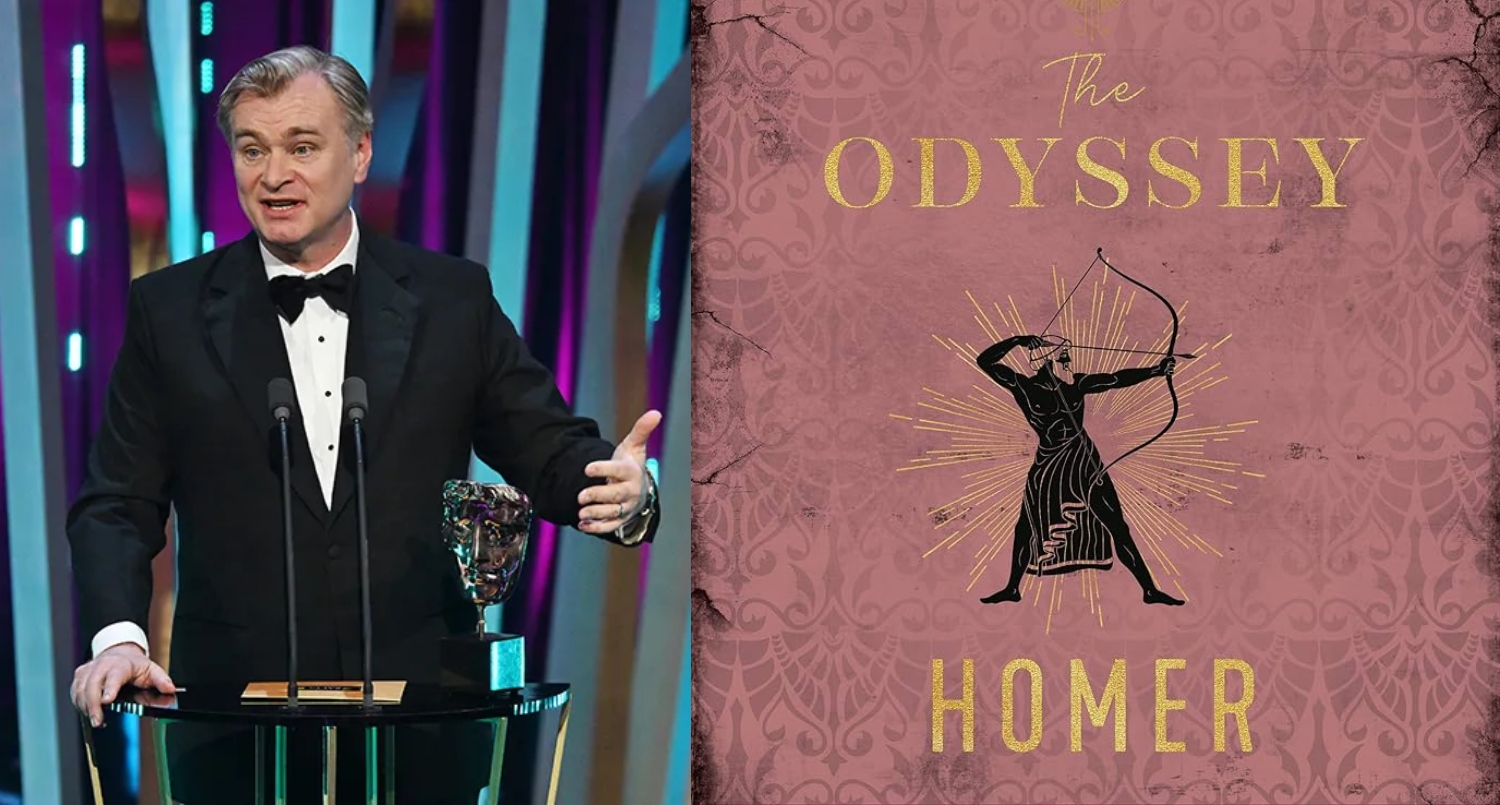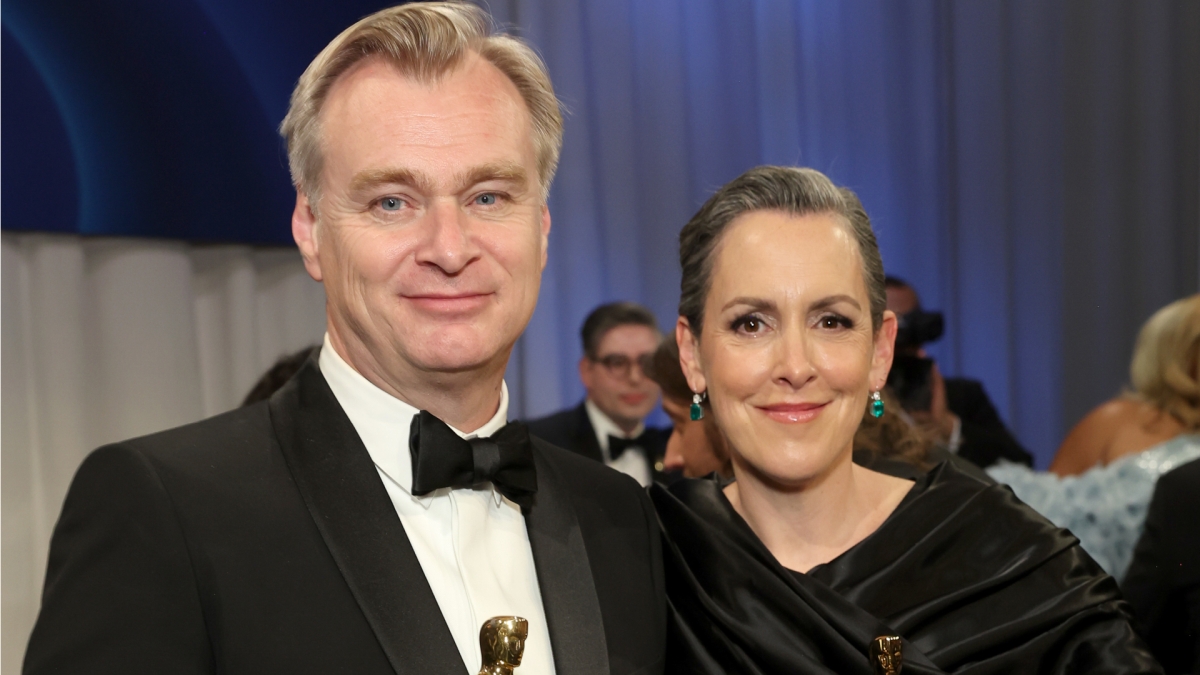Nolan has taken on the adventures of Odysseus and his “Odyssey”. Who will apologize?

Refusing Christopher Nolan the opportunity to direct The Odyssey might seem peculiar to his fans, but it does make rational sense—at least when one examines his body of work and the actors proposed for the leading roles. Moreover, ancient epics have historically struggled in cinematic adaptations, often faltering in terms of narrative. The Odyssey is no exception, with perhaps the most well-known adaptation being Andrei Konchalovsky’s version featuring a star-studded cast. However, it has been largely forgotten today, not only due to its simplistic script but also its modest production.
Nolan’s version might avoid such pitfalls, if only due to his reputation as a director. However, I still harbor doubts—first, whether this is the right moment in Nolan’s career to tackle the adventures of ancient Odysseus, and second, whether someone with more experience in historical-fantasy and a less familiar cast might be a better fit. Casting Matt Damon, Tom Holland, and Zendaya isn’t exactly groundbreaking. It feels more like an attempt to capitalize on their star power than a deliberate effort to embody Odysseus, Athena, or Poseidon in a truly memorable way. This issue extends to the numerous other mythological figures in The Odyssey, whose casting requires exceptional thoughtfulness. We know little of the casting decisions beyond the aforementioned names and a few others, such as Anne Hathaway, Lupita Nyong’o, Robert Pattinson, and Charlize Theron.

Curiously, a specific release date—July 17, 2026—has already been announced, which is an unusual level of precision in modern filmmaking. Nolan himself penned the screenplay, with his wife assisting in production, making this a family project of sorts. I hope Emma Thomas can balance Nolan’s analytical tendencies, lending the adaptation a more magical and adventurous tone. That said, another concern arises when I reflect on Nolan’s filmography. He is a formalist and a meticulous storyteller who often distances the emotional core of his films from the audience. This doesn’t mean his films lack emotion—they contain plenty, but these emotions are often layered and require decoding through other scenes or dialogue. The Odyssey, however, should not be overly complex. As an epic, its message must be clear, though not simplistic. It cannot devolve into an action-adventure film with overly intricate metapsychological, formal, or political themes.
This is a challenge for Nolan, whose productions often resemble treatises. Such an approach would not harmonize well with Odysseus’ epic. For this reason, Nolan is far from an intuitive choice for adapting The Odyssey. Directors like Peter Jackson, Ridley Scott, or even Mel Gibson would have been more obvious and safer options. Nolan views historical events through a factual lens, whereas The Odyssey straddles the line between history and myth. Nolan’s portfolio lacks films that fully embrace this kind of mythic storytelling. If his style were more diverse, there might be more hope. While he uses different genres to tell his stories, his narrative approach remains quite uniform and distant from Homer’s tale. Unless, of course, audiences desire a distinctly “Nolanized” adaptation of Odysseus’ adventures.
After all, Nolan demonstrated his ability to maintain narrative discipline while creating a unique take on superhero films in Batman Begins. Perhaps he could similarly find a way to succeed with fantasy. Yet risks and doubts remain. It’s also worth questioning whether another version of The Odyssey is even necessary and, if so, what form it should take. Universal Pictures’ decision to produce such a blockbuster about a hero like Odysseus aligns with its history of iconic films like Jaws, Back to the Future, and Jurassic Park. Hiring Nolan speaks to a commercial strategy, as he is a highly profitable director who avoids clichés in his work, though he has his share of vehement critics.

Nolan’s visions may not resonate with everyone, but one cannot deny his ability to craft compelling and unconventional stories, whether purely fictional or biographical-historical. Perhaps this is why Universal is willing to take a chance on him. It’s clear that a Nolan-directed Odyssey could spark controversy, but this controversy could also promise significant profits. As a fan of The Odyssey, I hope Odysseus finally becomes the legendary cinematic figure he is in mythology. It’s puzzling why this hasn’t happened yet—why Odysseus hasn’t been transformed into a superhero as iconic as Batman, despite having far more compelling adventures than, say, Indiana Jones. The latter benefitted from the exceptional presentation of the Lucas-Spielberg duo, creating a safe narrative. Odysseus’ story, one hopes, will not follow the same path.
I remain skeptical about whether Nolan can succeed or whether he might over-intellectualize The Odyssey, diluting its Greek mythological magic into an overly complex narrative with too many layers. On the other hand, Nolan presents an opportunity to experiment with The Odyssey, potentially crafting a uniquely original Odysseus—defined not by superpowers but by complex relationships that defy today’s overly safe storytelling standards. These standards, though progressive, risk becoming as oppressive as the conformist and puritanical norms they replaced. Someone with Nolan’s commercial standing and distinctive vision might indeed be the right person for this challenge, though I’m unsure if The Odyssey will be a turning point in his career. Regardless, someone will inevitably have to apologize to disappointed fans, depending on how Odysseus is portrayed.

